Your Brain Is a Liar. Here's How One Psychiatrist Proved It.
Nobody likes me. I’m a failure. I’m too ugly to love.
Our thoughts are so convincing that we often mistake them for truth.
We confuse feelings for facts, invent fictions on behalf of others, and cling to our own distorted interpretations of events. And when we act on our misguided thoughts, we typically wind up on the wrong side of truth — because the mind lies.
It’s absurd!
And until 50 years ago, psychology had no systematic way to help people stop it.
In the 1960s, the psychiatrist Aaron Beck was watching his depressed patients play a simple card-matching game. According to everything he'd learned in medical school, success should have made them feel worse. Freudian theory insisted that depressed people had an unconscious "need to suffer"—so achievement would threaten their psychological equilibrium and deepen their misery.
Instead, Beck's patients grew more confident, and their moods improved with each correct match.
This shouldn't have happened. It violated the fundamental principles of psychoanalysis that had dominated psychiatry for decades. But Beck couldn't ignore what he was seeing: his patients' moods weren't being controlled by mysterious unconscious drives. They were being hijacked by the thoughts they were having right now, in real time.
Beck had stumbled onto something that would revolutionize how we understand human misery: Depression isn't a disease. It's a con game your mind is running on you.
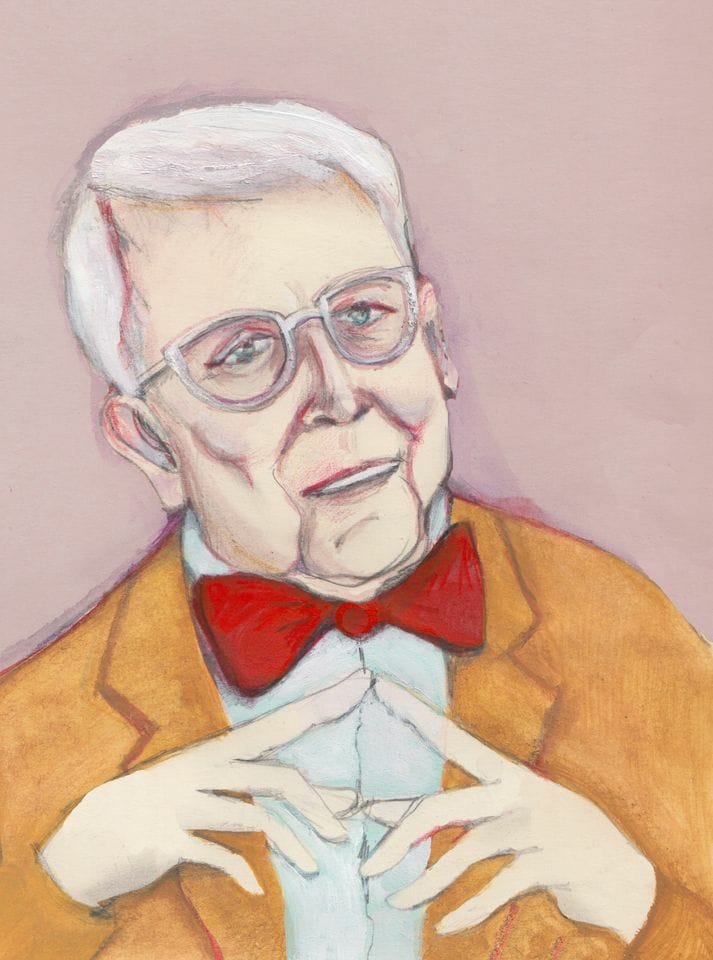
Original drawing of Aaron T. Beck by Edwina White
Beck discovered that your brain operates like a particularly skilled con artist. It presents distorted thoughts with such confidence that you never think to fact-check them.
I failed that presentation becomes I fail at everything. She didn't text me back becomes Nobody likes me. I made a mistake becomes I'm worthless.
What feels like insight is a cognitive hijacking. Your brain takes isolated incidents and spins them into convincing narratives about your fundamental inadequacy as a human being.
Here’s what makes the scam so effective—once you believe these thoughts, you start acting in ways that make them come true. You stop trying, avoid challenges, isolate yourself—and then point to these behaviors as proof that your thoughts were right all along.
It's a closed loop of self-destruction that most people never realize they're trapped in it.

As a young boy in Rhode Island. From Aaron T. Beck's Facebook Page
Beck's childhood gave him a preview of how convincing—and how wrong—our minds can be.
At seven, he nearly died from a blood infection that carried a 95% mortality rate. During a procedure, surgeons began cutting before the anesthesia had fully taken effect. The experience left him terrified of hospitals, surgery, even the smell of ether.
His brain learned a simple equation: Medical settings = death. This felt like crucial survival information, and he paid attention to what it foretold: His fear was trying to save his life.
His injuries required undergoing multiple surgeries, which meant being in the hospital and around the smell of ether. But his terror was so fierce, it threatened to prevent him from getting the medical care he needed.
So he did something radical: he began to self-treat through a system of logic; approaching what he couldn’t avoid (the hospital, more medical treatments) by exposing himself to his own fear.

To find out how he dismantled his fear, learn the method he created that we can all use, and read the transformative book written by Beck’s most devoted student, please upgrade.
Upgrade to keep reading 👉 What Beck discovered in those early experiments became the foundation for a therapy that shows us how to outwit fear itself. The same method he used to free himself can be used by any of us.
When he felt faint during procedures, he told himself that the smell of ether didn’t lead to fainting, but rather his belief in his own fear. This was his way of “staying active” and keeping panic at bay.
As long as you're actively involved in something, anxiety tends to hold back.
This was his first glimpse of a revolutionary idea: you don't have to obey your thoughts.
The same principle applied when he had to repeat first grade after his illness. His brain immediately supplied the obvious explanation: You're stupid. This felt like an objective assessment of his intellectual capacity.
Beck decided to test this too. He studied relentlessly and didn't just catch up with his peers—he surpassed them.
He proved his mind wrong again.
At a young age, he’d discovered how to use resilience as fuel to face down his demons. Most of us, when fear devours us, are forced to improvise a way through. Beck was no different.
What he learned in childhood helped him create in adulthood a ground-breaking treatment we continue to use today.
When Beck started teaching patients to question their thoughts, he discovered something shocking: most people had never asked their minds to provide evidence for their most devastating self-assessments.
I'm a failure felt like a fact, but when patients were asked to list actual evidence, they usually came up with one or two recent incidents. Everything I touch turns to disaster typically translated to "I made mistakes at work this week."
The thoughts that felt most true were often the least accurate.
Beck developed a simple technique that sounds almost insultingly basic: when your mind presents you with a harsh judgment about yourself, ask it to prove its case.
What evidence do you have for that?
Would this hold up in court?
Would I say this to a friend in the same situation?
Most negative thoughts collapse under this kind of scrutiny. They're not based on comprehensive data analysis. They're based on feelings that have been dressed up as facts.
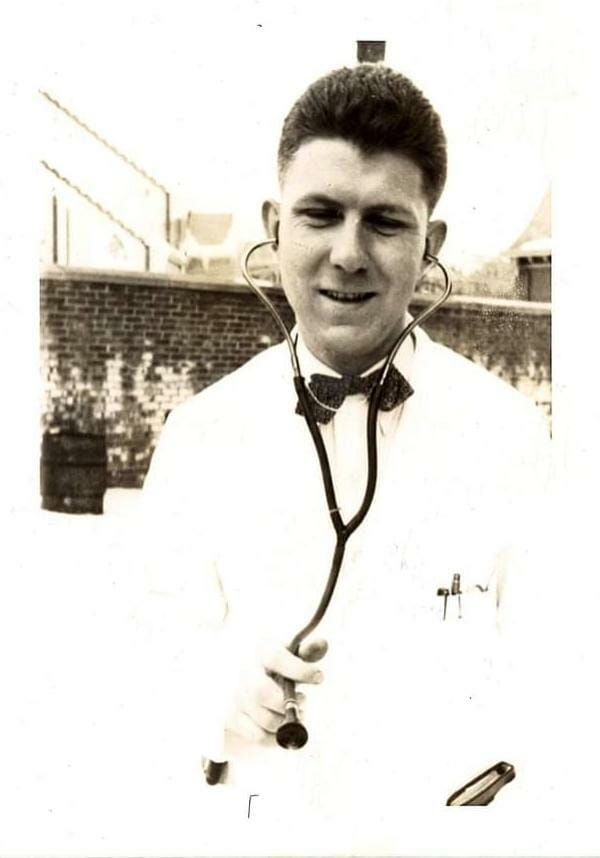
1948 Dr. Beck received his M.D from Yale School of Medicine. Source: Aaron T. Beck Page
Beck's approach—which became known as Cognitive Behavioral Therapy—is now the most widely practiced form of psychotherapy in the world. It's been tested in hundreds of studies and proven effective for depression, anxiety, PTSD, addiction, eating disorders, and dozens of other conditions.
But you don't need therapy to use Beck's core insight. You just need to start treating your thoughts like they're trying to sell you something.
Because they are.
Since patients are aware of their conscious thoughts, it’s not as difficult [as traditional psychotherapy, which requires the exhumation of buried memories] to correct misperceptions.
Right now, as you read this, your brain is probably generating a steady stream of commentary. This is stupid. I already know this. I don't have time for this. This won't work for me.
Beck would ask: What evidence do you have for these thoughts? Are you confusing a feeling with a fact?
The voice in your head isn't trying to help you. It's trying to keep you exactly where you are, because change feels dangerous to the part of your brain that's designed to detect threats.
But Beck proved something that sounds almost too simple to be revolutionary: you get to decide whether to believe that voice.
Nobody likes me is not a fact requiring your acceptance. It's a hypothesis requiring your investigation.
I always mess things up is not an accurate assessment of your capabilities. It's a story your brain is telling based on selective evidence.
I'm not good enough is not a verdict you have to live with. It's a thought you can examine, challenge, and replace with something more accurate.
Beck's entire revolution can be distilled into a single question that cuts through decades of mental conditioning:
Is this thought helping me or hurting me?
Not Is it true? (because feelings make everything feel true). Not Do I believe it? (because we believe lots of things that aren't helpful).
Just: Is this thought making my life better or worse?
If it's making your life worse, you can choose not to believe it. You can treat it like spam in your mental inbox—acknowledge it, then delete it.
Beck spent his career proving that we are not victims of our own minds. We are not condemned to believe every story our brains tell us about our inadequacy, our future, or our worth.
We can learn to argue with our thoughts. And we can win.
The boy who nearly died at seven grew up to save millions of people from a slower kind of death—the gradual suffocation of believing every terrible thing their minds whispered about who they were.
Your brain is a liar. But you don't have to be its victim.
Can’t afford Cognitive Behavioral Therapy? Start with the transformational book Feeling Good written by Beck’s student, David Burns.
Until next week, I will remain,
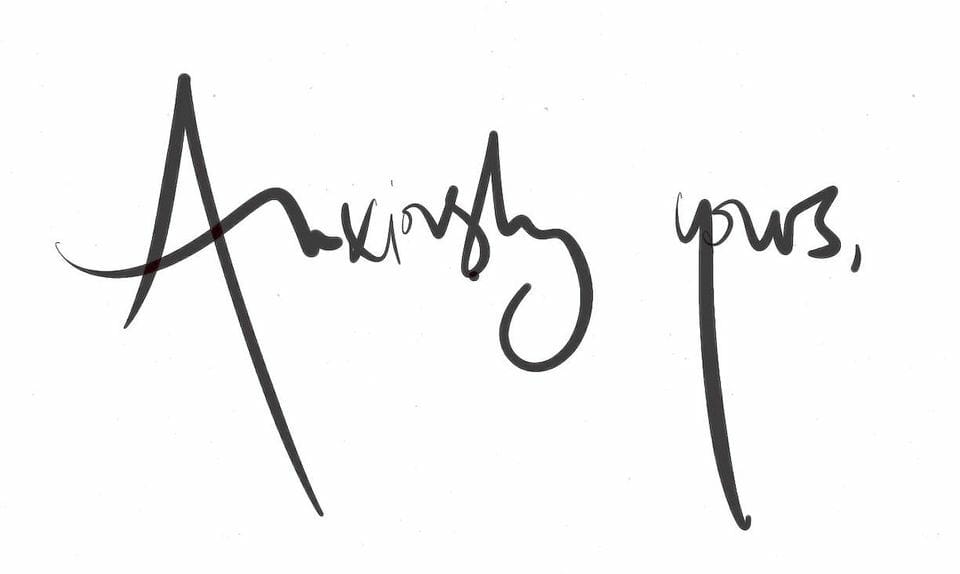
Amanda
P.S. Thank you for reading! This newsletter is my passion and livelihood; it thrives because of readers like you. If you've found solace, wisdom or insight here, please consider upgrading, and if you think a friend or family member could benefit, please feel free to share. Every bit helps, and I’m deeply grateful for your support. 💙
Quick note: Nope, I’m not a therapist—just someone who spent 25 years with undiagnosed panic disorder and 23 years in therapy. How to Live distills what I’ve learned through lived experience, therapy, and obsessive research—so you can skip the unnecessary suffering and better understand yourself.
Some links are affiliate links, meaning I earn a small commission at no extra cost to you. Every bit goes straight back into supporting this newsletter. Thank you!

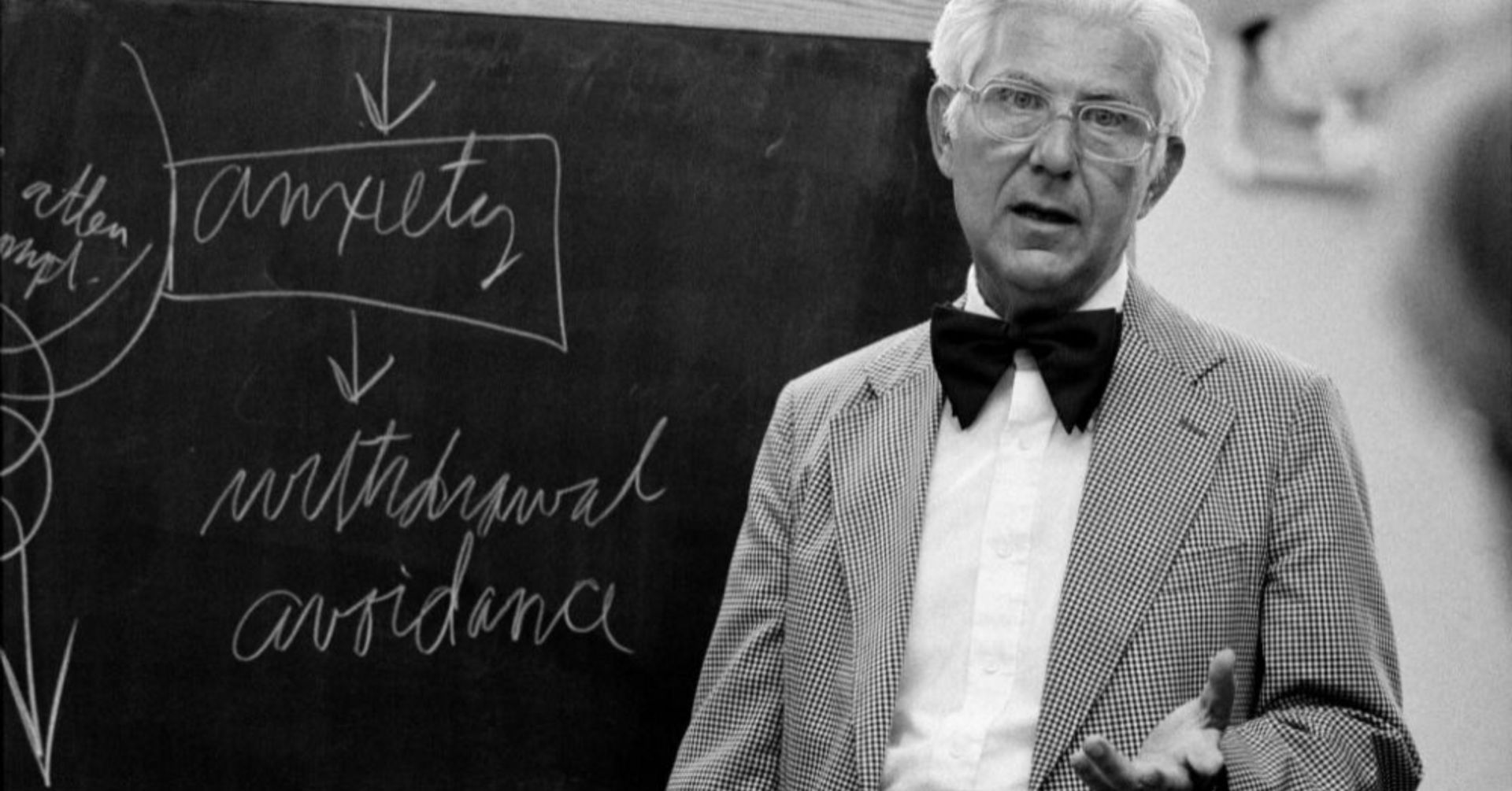
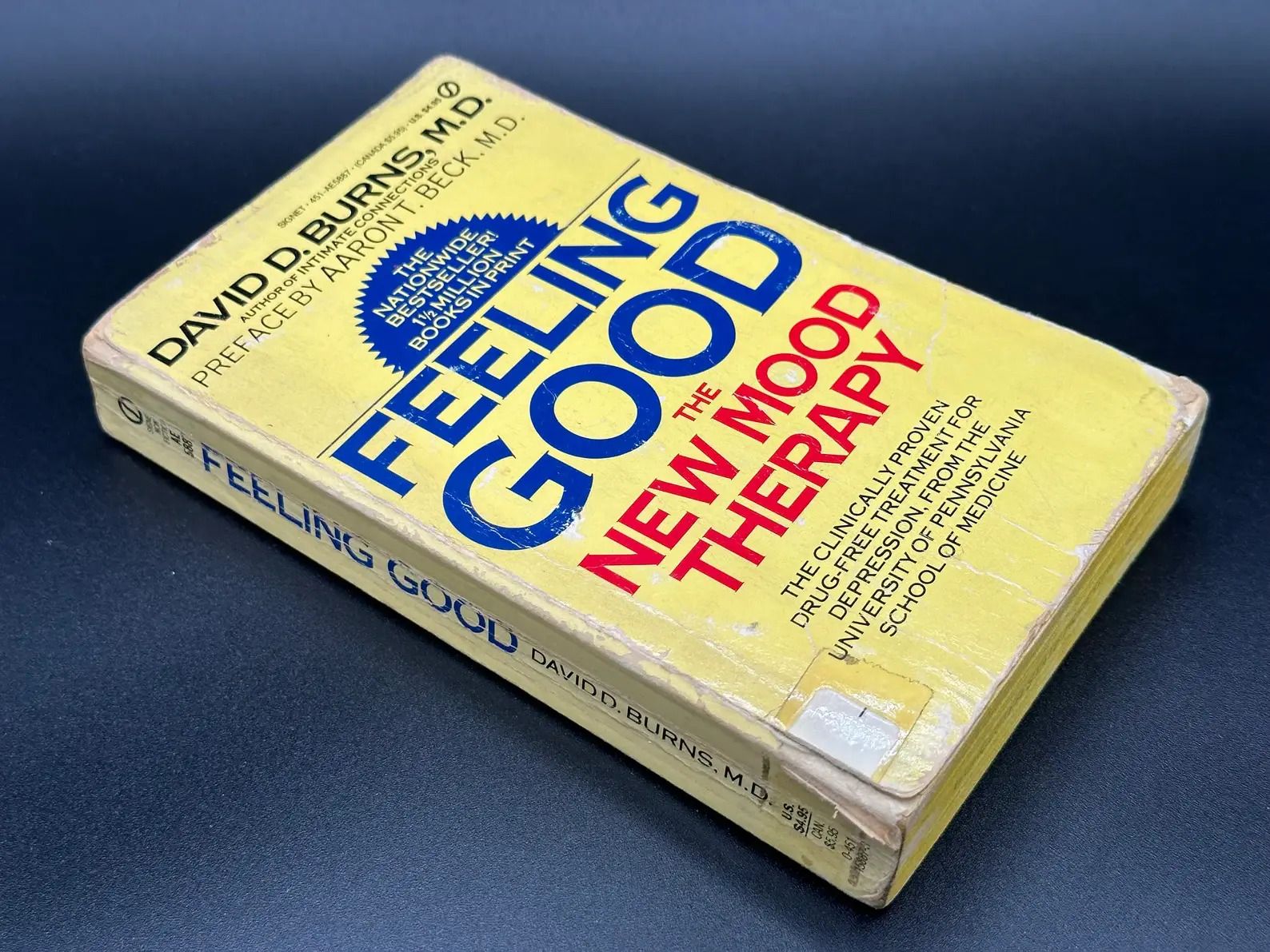
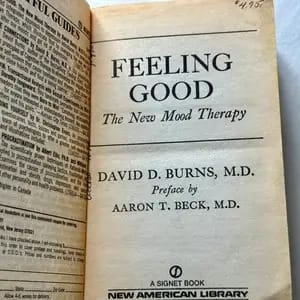
 Upgrade
Upgrade